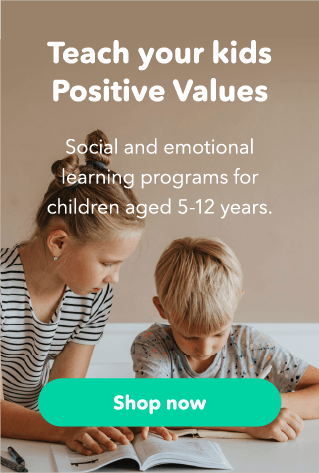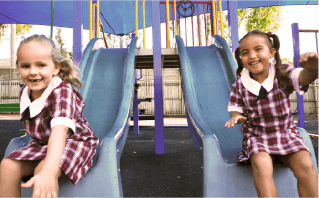
There is no handbook for parenting, but that hasn’t stopped parents from trying to find the best hacks for raising their children. As a parent, it’s easy to get overwhelmed. Well, don’t worry – we’ve got you covered! Here are 7 hacks of exceptional parenting.
I could use any number of analogies – a juggler with a dozen balls in the air, a chef with pots boiling over, running on a speedy treadmill – but as a parent, I know you get it!
It’s the feeling that you’re continually chasing; always just a step behind. In the case of parenting, the thing you’re chasing is “parenting oasis”, where you’re relaxed, in-sync and in control. Where you are your best self, and your kids are safe, served and prospering.
So how do you get there; to that “parenting oasis?”
Whenever I feel overwhelm approaching, I like to pull out my Joker card, Pareto’s Principle (or the 80/20 Rule). Pareto’s Principle forces me to identify and focus on the fewer, most essential things, that’ll give me the greatest return on effort. I find it both liberating and useful.
By applying Pareto’s Principle to parenting, I’ve identified what, for me, are the seven (7) most essential areas of focus. When these things are going well, everything remains on track. When one or more fall out of balance, life’s pace quickens, and things seem more challenging and stressful.
For this article, I’ve labelled them the 7 Hacks of Exceptional Parenting.
They are:
- Self-care
- Sleep
- Safety
- Activity
- Empower
- Consistency
- Modelling
Self-care
I find that when I’m parenting my best, I’m at my best. If we want our kids to be their best selves, we need to give them our best self.
When you’re stressed and strung out, so too are they. It’s next to impossible to “silo off” your stress. Stress leaches into others, like osmosis. Our emotions spread – for good or bad – like the flu. It’s called Emotional Contagion.
In fact, when parents experience parental stress, it can physically harm their child. Parental stress can deplete their child’s immunity and increase their chances of obesity and mental illness.
So, my first parenting hack begins with YOU. Take care of yourself. Put your face mask on first. By reducing your stress, you’ll also be reducing your child’s stress.
Sleep
If you could take a pill that made you happier, less depressed, and less anxious, whilst reducing your risk of flu, heart attack, stroke and diabetes, would you take it?
The drug? A full night’s sleep. The cost? Free!
Whilst these claims may sound over the top; more than 17,000 scientific reports support them.
And the cost of poor or disrupted sleep – devastating! It dramatically increases your odds of having everything from mood disorders to cancer, and everything in between.
According to Dr Matthew Walker, one of the world’s leading neuroscientists and sleep experts, “sleep is the single most effective thing we can do to reset our brain and body health each day— Mother Nature’s best effort yet at contra-death.”
If you want to give your child a great head start in life, make sure she gets ample sleep. Numerous studies have found that kids who regularly get enough sleep have improved behaviour, attention, memory, learning capacity, and overall physical and mental health.
As a parent, the gains in mood and emotional regulation alone should be enough. All the rest is cream!
Safety
Kids need to feel emotionally and physically safe. A safe environment reduces stress. This keeps them out of the “fight or flight” zone, so what you experience is a calmer, more reasonable little person.
You only need to reflect on your own experiences. Can you think of a time when you haven’t felt emotionally or physically safe – perhaps in a work, family or home environment. The ambient stress creates anxiety and impacts your mood, energy levels, and even cognitive abilities (reasoning, problem-solving, etc.).
A sense of safety also allows kids to connect with and express emotion, which is crucial for developing the ability to self-reflect, develop empathy and build healthy relationships.
In short, a sense of safety helps kids prosper across the board.
Activity
Kids benefit from being physically and mentally active. Daily physical activity helps their brain and bodies develop. It also helps build their confidence and assists with concentration and sleep. Similarly, mental activity, such as structured and unstructured learning, helps them develop cognitively.
I find a healthy balance of regular physical and mental activity not only helps my children develop; it also improves their ability to regulate and focus emotionally.
Switching between mental and physical activities can also help your child improve their learning skills. Using physical activity to space learning achieves several purposes. Time chunking optimises for attention and focus. Regular breaks help maintain energy levels. And spaced repetition helps build learning pathways.
Empower
We want our kids to progressively become more self-empowered and autonomous. This isn’t so that they rely on us less – it’s because it assists them to function well in the world. In our Values Guides, we refer to this as “shifting the cognitive ratio,” as we move more cognitive effort in their favour.
Kids raised with a high degree of self-autonomy demonstrate greater levels of motivation, self-regulation, and general psychological health.
We can empower them in simple, age-appropriate ways. You can give them choices rather than directives (i.e., choose between options) so they feel greater involvement in decisions affecting them. You can engage them in basic decision making, such as which chore to do first. You can have them evaluate their work. And ultimately, you can have them set their own goals and be involved in more complex and important decisions.
A little heads-up: as a parent, helping your child develop autonomy can, at times, feel counter-intuitive. After all, it can be challenging to resist the temptation to control your child’s play, discoveries, and developing mastery. For instance, it may require allowing your child to make “incorrect” choices, thereby providing them with learning opportunities. Or it may require you to allow more time for decisions, as your child considers options.
For more ideas on how to empower your child, refer to our Self Determination program.
Consistency
Kids thrive on consistency and predictability. Consistency incorporates both emotional and structural consistency.
On the emotional front, consistency means behaving predictably, as well as maintaining consistent rules and boundaries. This helps your child understand how to operate in the world. To internalise behaviours, kids need to experiment, experience and repeat. When they experience consistent patterns, they learn quickly and internalise behaviours. When feedback is inconsistent, they struggle to understand how they should behave.
The same goes for structural consistency. When kids know their routine, they feel safe and make better choices.
One of the most important things you can do for your child is to establish a routine and have clear consistent boundaries.
Modelling
“Children have never been very good at listening to their elders, but they have never failed to imitate them.” James Baldwin.
The behaviours our kids’ model are “caught” as much as “taught.” If you frequently act a certain way, yet instruct them to act another, they’re more likely to act the way you act; rather than the way you instruct them to act.
The whole “do as I say, not what I do,” does not hold with kids (if anyone!). Modelling is so important that I have a little habit I employ when my kids demonstrate behaviours I don’t like. Instead of reverting to my natural instinct, which is to correct the behaviour, instead, I ask myself, “what behaviours have I been demonstrating that they are mirroring?”
This question forces me to continually reflect on my own behaviour (which is always a healthy habit). It also creates some mental space and separates my child from their behaviour.
Conclusion
We all want to be the best parents we can be. But it’s easy to get overwhelmed and fall into a state where we are just reacting to one thing after another. I hope this article gives you some “higher level” things to focus on. If you can manage this, most of the smaller issues tend to take care of themselves.
To recap, let’s summarise the 7 Hacks of Exceptional Parenting:
- Put your face mask on first. You need to be at your best before you can be your best for your little person. So, take care of number 1!
- Make sure your little person gets a minimum of 10 hours sleep a night. Modern research is reinforcing just how crucial sleep is. It is the number one thing you can do for your child to supercharge their mental and physical wellbeing.
- Kids need to feel physically and emotionally safe to flourish. Work on providing your child with safe environments, where they can build trust and safely experiment and grow.
- Ensure your child gets adequate physical and mental activity. Ideally, this means 60-minutes physical activity per day, as well as time for structured (school and homework) and unstructured learning.
- Progressively move the cognitive ratio to your child. In an age-appropriate manner, help your child move toward autonomy. Start with little things, like giving them more choices, then progress to more significant decisions.
- Aim on keeping their emotional and structural environments consistent. This means acting consistently and maintaining predictable routines.
- Lastly, demonstrate the behaviours you want them to exhibit. Not only will this help develop them into the people you want them to be; but it’ll also help you be the best version of yourself.
Related Articles
Parenting Mental Models: 12 Ways To Leverage Your Parenting




